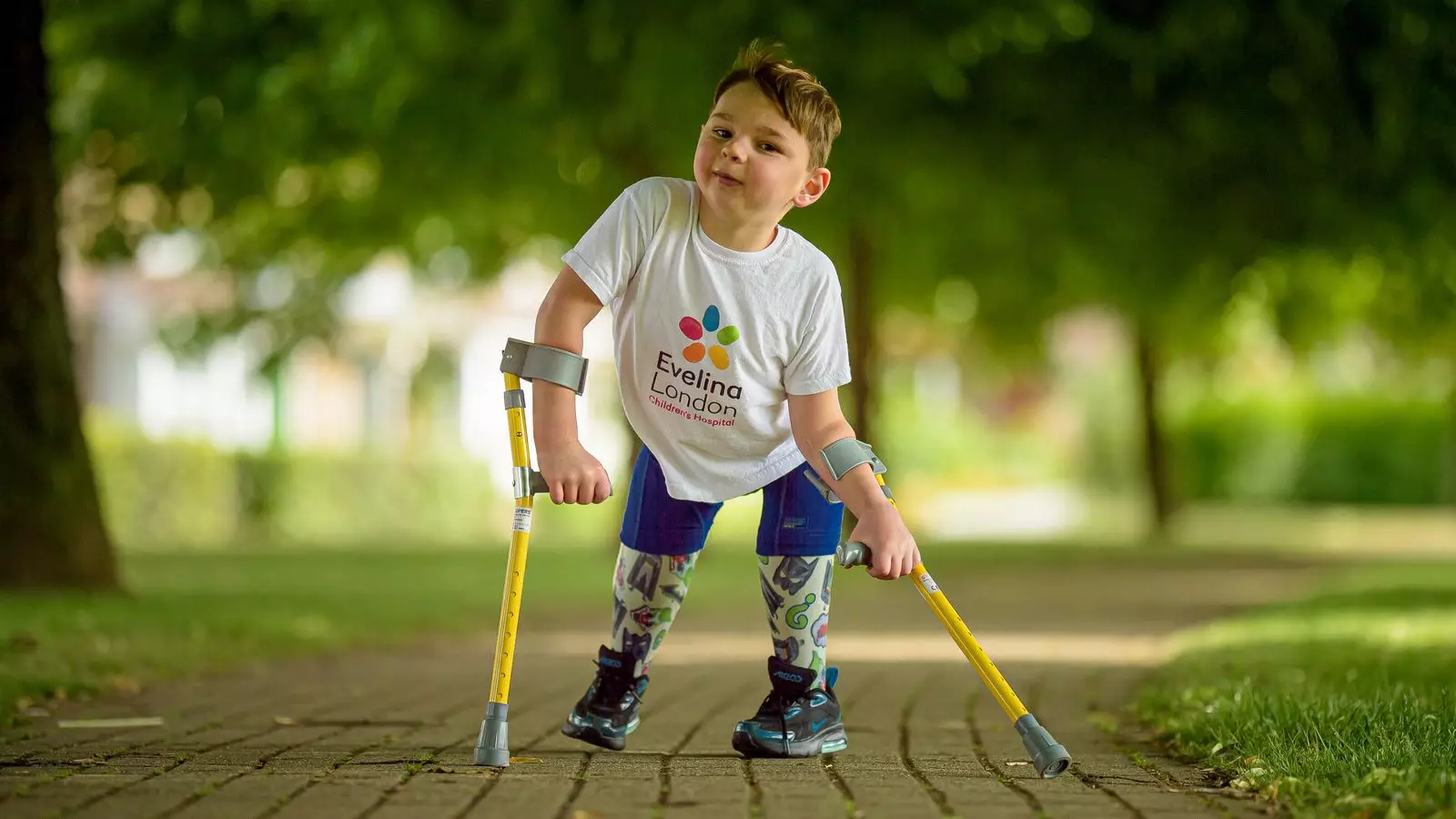In a society that prides itself on its protective measures for children, the recent decision to release Jody Simpson, a mother who orchestrated unspeakable horrors against her child, has raised questions about the effectiveness of our justice system. Tony Hudgell, just a few weeks old when the abuse began, suffered irreparable harm at the hands of his birth parents. After enduring a torturous existence marked by broken bones, sepsis, and ultimately the amputation of both legs, Tony’s story embodies the persistent struggle for justice and the inadequate protection that our most vulnerable citizens receive.
The brutality of Simpson’s actions is immeasurable. Her release, occurring only partway through a 10-year prison sentence, operates under a flawed perception of redemption that prioritizes purported stability over the lasting scars left on innocent lives. The fact that she is being liberated while her son continues to grapple with the lifelong effects of his injuries raises a fundamental moral question. Does early parole for such heinous crimes send a message of leniency that contradicts the severity of the offenses?
The Role of Public Outcry and Legislative Action
Tony’s plight has not gone unnoticed, prompting significant public discourse and legislative responses. Advocacy groups and concerned citizens have generated a swell of demand for stronger laws, leading to the proposed “Tony’s Law.” This initiative aims to impose stricter sentences on child abusers, thereby ensuring that such appalling acts do not go unpunished. Yet, despite these efforts, the decision by the Parole Board to release Simpson undermines the message that society intends to convey: that child abuse is unacceptable and should be met with the harshest consequences.
Many lawmakers, such as Tory MP Tom Tugendhat, have rallied behind Tony’s case to galvanize support for reforms. The anticipation surrounding Simpson’s release ignites a renewed urgency to ensure that legislative efforts translate into tangible change. In a world where child abuse should be universally condemned, the system must reflect society’s unyielding stand against such acts, not waver at a momentous moment in the life of an innocent victim.
Critiquing the Parole Board Process
The Parole Board’s justification for releasing Simpson hinges on a risk assessment and the notion that she has demonstrated acts of rehabilitation. However, this rationale seems profoundly disconnected from the lived reality of victims like Tony, who suffer long after the perpetrators have served their sentences. The risk of reoffending should never be the sole measure of a prisoner’s release, especially in cases that carry the gravity of child abuse.
By prioritizing what can be perceived as a reformed character over the pain inflicted on a child, the Parole Board gestures toward a precarious standard that ultimately favors offenders. The reality remains that Simpson’s actions have caused lifelong damage to Tony, who will live with the consequences of that twisted affection for the rest of his life. It begs the question: how can a system that focuses on rehabilitation truly serve justice when the victims are left to bear the scars alone?
Public Sentiment and the Future of Child Protection Laws
Tony’s adoptive mother, Paula Hudgell, articulated the pain and anger that many feel about Simpson’s imminent release. Her poignant social media statement underscores the enduring trauma that Tony will experience, a reality that should resonate deeply within the fabric of our society. When a child bleeds from the deliberate actions of their parents, it should never be forgotten or overlooked in the quest for forgiveness or second chances.
We must confront the unsettling truth that our current mechanisms for preventing child abuse—and addressing its aftermath—still have a long way to go. Lives irreparably changed through brutality underline an urgent need for sweeping reforms in how we approach child protection. Tony’s ongoing journey of recovery serves as a rallying cry for advocates who work tirelessly to ensure that no other child faces the same fate.
The time has come for society to take a firm stance against child abuse and implement reforms that resonate with our collective outrage. Public sentiment can no longer be a passive observer but must transform into action that safeguards the future for children like Tony—because every child deserves a chance at life unmarked by the horrors that too many have suffered.

